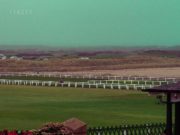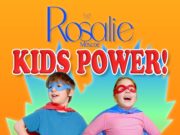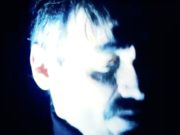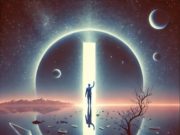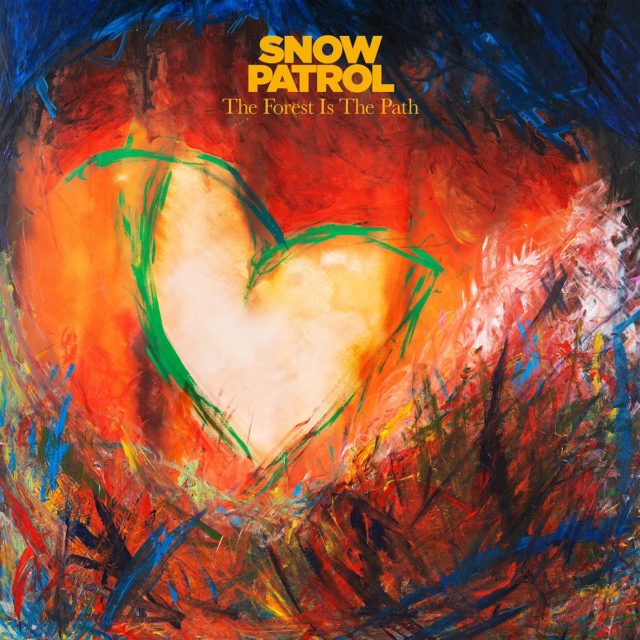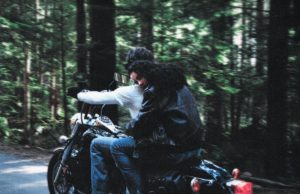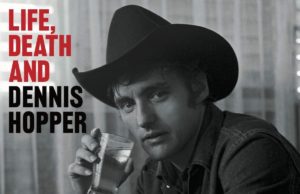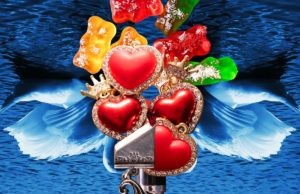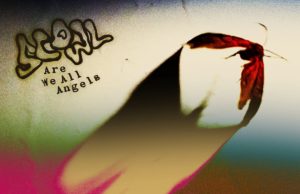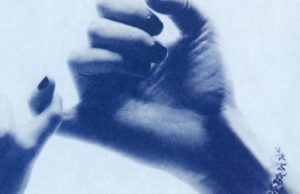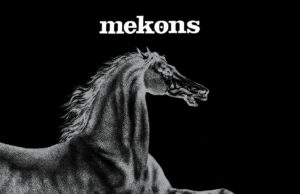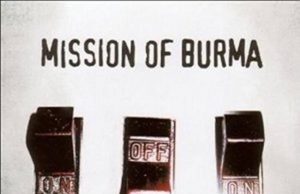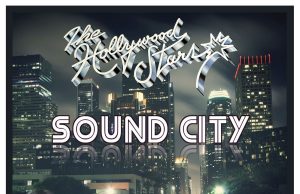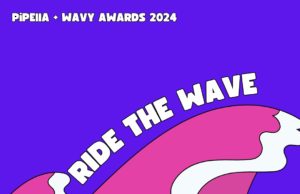THE EDITED PRESS RELEASE: “Snow Patrol have never really taken the easy route. Now comprising the trio of Gary Lightbody, Johnny McDaid and Nathan Connolly, the band have emerged from the process of writing and recording their extraordinary new album The Forest In The Path, perhaps a little battered, but maybe, just maybe, a little wiser and certainly more humble from the experience.
Fans of the band will all have favourite albums that they return to again and again. What could possibly hold a candle to Final Straw, to Eyes Open? To A Hundred Million Suns, Fallen Empires? To Wildness? Yes, a trillion times, to all of those. But wait, wait, until you listen to The Forest Is The Path.
Love, loss, regret, self-doubt, denial, delusion: anyone afflicted by any of these experiences, emotions and afflictions — and isn’t that all of us? — might be well advised to gird themselves before listening to Snow Patrol’s new album. It’s not a record for the faint-hearted, to be sure — but it may just be a salve for the heart that hurts.
Lyrically, it’s by far the most laid-bare and most unsparing of the band’s albums (which is saying something). Phrases leap out and ambush you, constantly. “I’m only lost if you don’t look for me.” “I’m not going to lie to you anymore, after these lies. Then no more.” “I want to be in love without being loved in return.” “I’ve told myself a million times who you weren’t, so I can finally forget who you were.” “Love is just pain in reverse.”
As those lyrics suggest, The Forest Is The Path is an album rooted in reflection, introspection and interrogation. One of its key building blocks, says Gary, was the idea of love from the distance of time. “I was going on really long walks and just having these ideas and then diving down into them. I haven’t been in a relationship for a very long time, 10 years or more, so love from a distance to me meant the way a relationship sits in your memory from a distance of, say, 10 years. That’s not something I’d previously thought about as a way to write about love. So it’s like, when you’re in love, you’re standing in the lobby of the Empire State Building. When you’ve broken up with that person, you’re out in the street. You can still see the building, but you no longer have access to it. And when it’s 10 years later, you’re standing in Brooklyn, looking across the East River at the Manhattan skyline.”
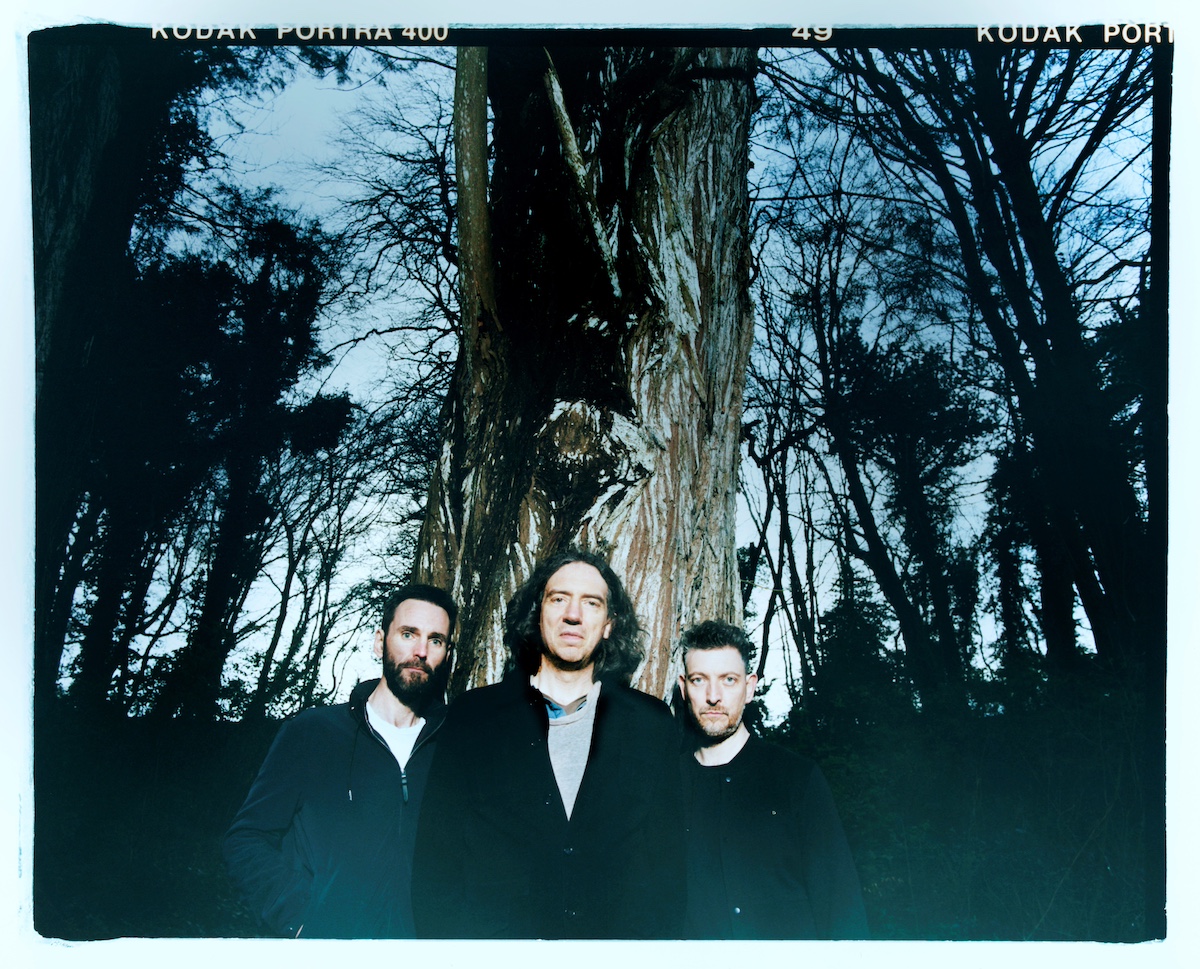
It’s a theme addressed unblinkingly and unflinchingly on the album’s first single, The Beginning, a song that builds from a Bryan Ferry-like verse to a huge chorus that will be incendiary live. “That’s kind of a summing up of this album,” Gary continues. “It’s a way of looking at various mistakes, the hurt that I caused, from a place where nothing is hurting anymore, except the memory when you pull it back into your mind. The memory itself is full of hurt but everything around it isn’t. You’re holding in your hand this ball of fire, but you’ve got gloves on.”
The Forest Is The Path’s genesis was protracted, to say the least. The seeds for it were sewn in the spring of 2022, when Gary and Johnny headed to the West Country to lay down some ideas. “Johnny and I went to this beautiful place in Somerset to start work on the album. We were only there for three days. I normally have an idea for a melody and then I will go away and write the lyrics. And Johnny was like, ‘Why don’t you just write them now? And we can finish the song today.’ The first day we wrote The Beginning, start to finish. The second day we wrote Everything’s Here And Nothing’s Lost. And the third day we did Never Really Tire. I went with Johnny’s suggestion, I wrote without editing. No stabilisers — you’re going to write and you’re going to live with it. And of course in the back of mind I’m thinking, ‘You’ll change it.’ In my notebook, there’s one line scored out. That’s it.” “And he did the vocal in one take,” says Johnny. “Straight after writing the lyrics. So it has this mind-collapsing quality to it where you feel like you’re seeing into someone’s soul.”
“We were in this idyllic countryside in the springtime,” Gary recalls. “We’ve never really done that before. And there was a laser-like focus. Johnny’s original versions were so powerful. You can’t talk about the production of this album without acknowledging the massive impact Johnny had on it. He won’t say that himself, so I will. The work he put in was gigantic. I was playing the songs to people when we got home and they were going: ‘Just release that. It sounds fucking amazing!’ And there was a moment where I was trying to convince Johnny that we had the record done, and he was like, ‘No, no, let’s take it somewhere further.’ ”
Somewhere further initially took Gary, Johnny and Nathan down, what would turn out to be, the wrong path. The studio sessions they booked failed to build on the Somerset momentum, and there were moments where they wondered if that early optimism had been misplaced. Some sort of catalyst was required, and it took the shape of the renowned producer Fraser T Smith, whose stellar CV boasts the likes of Adele, Gorillaz, Lily Allen and Stormzy.
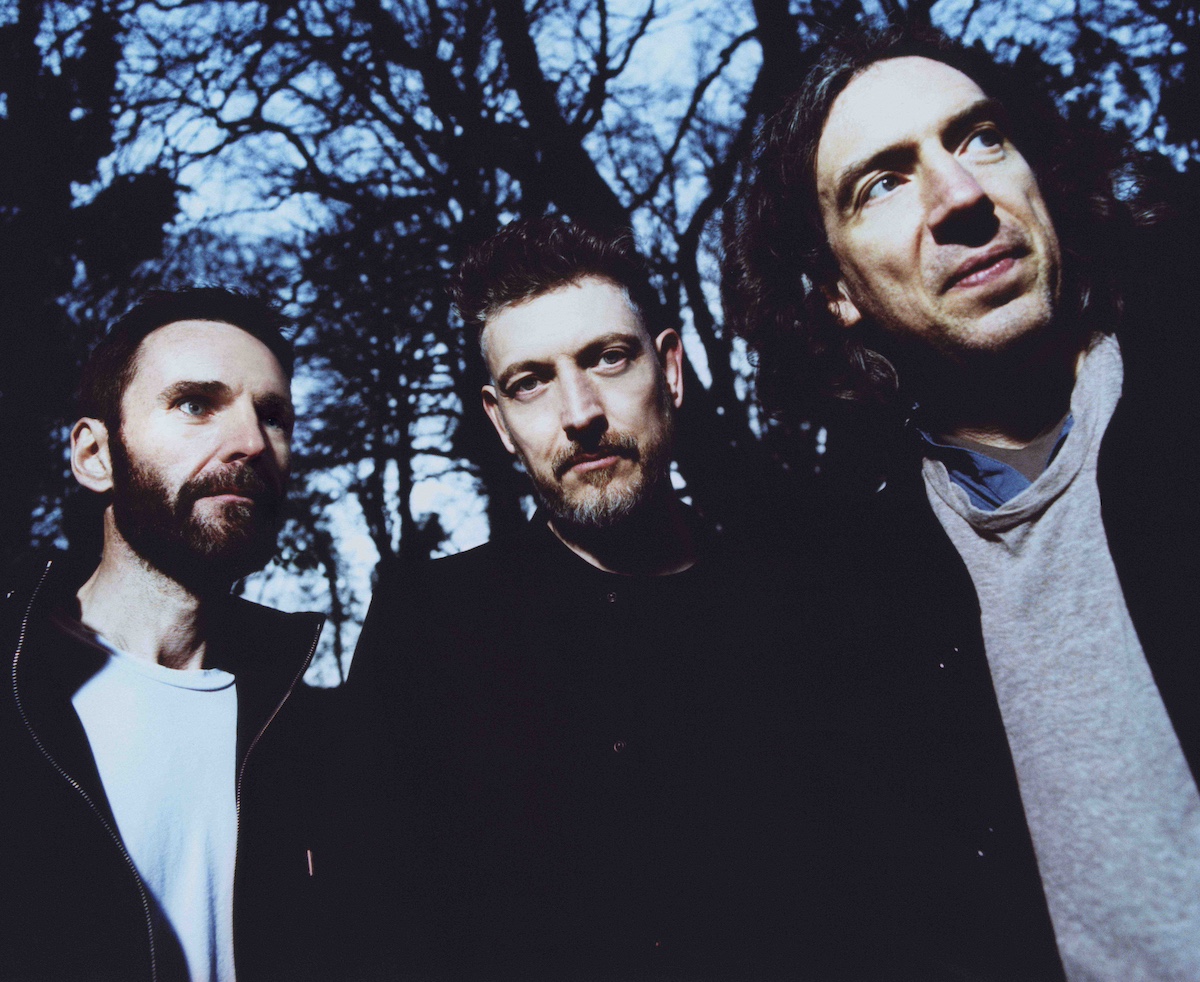
“I had written the song All with Fraser,” says Gary, “and the three of us started thinking, ‘Shall we try working with him?’ We went in with him for a week and it’s no exaggeration to say that we were in love with him within the first half an hour. There’s a line in one of my favourite books, Grab On To Me Tightly As If I Knew The Way, where the lead character is talking about falling in love and goes ‘Something is happening here’. That phrase kept coming back to me. I could feel it in my bones. My atoms were changing. That something is happening here.”
All three Snow Patrollers agree on the pivotal role Fraser played. “We have to honour his massive role in this,” says Gary. “We were lost, I think, at the moment we reconvened. We still hadn’t quite figured out how to get the album done, or even if it was going to get done. Before that moment, we were pretty much certain that getting to a finished album would be an almost impossible task.”
Beside him, Nathan nods in agreement. “It takes a great producer to trust that a group of people know what they want to do even if they themselves don’t yet know it. Someone who is sufficiently ego-less to stay out of the way of it but strong enough to guide you. It was a gamble in a way to go and meet Fraser, someone we didn’t know. But he was just amazing. Amazing. The difference between our first attempt at the album and now is so vast, I don’t know how we got here. It was a sort of surrender. We’ve been through a lot, and so have lots of other bands. But the flow this time between our conversations and our musical communication — and our emotional conversations — has turned into something so different.”
For Johnny, Fraser’s key contribution was to set the band loose — no rules, no inhibition, no second guessing, no over-thinking. Honour the song. “I’ve never seen Nathan in the studio like I witnessed on this album. Never seen the daring and abandon and the reaching beyond just ‘I know the answer to this question’. He was running at things openly not knowing the answer, and by doing that coming up with the answers that we didn’t even know were being asked of a song. And then Gary going off into the corner of the room with some abstract track playing in the background, and then coming back and going: ‘Ok, here’s this thing.’ There were times when I was just overcome with emotion – that ‘something is happening’ thing again. I didn’t know what the ‘something’ was, but it was fucking happening for sure. And with these two, I witnessed that so many times. I’d felt it with them on stage before, a lot. But this was constant. As I pull these words out of mouth now, I know they might sound trite. But fuck it, they’re real. They’re absolutely real.”
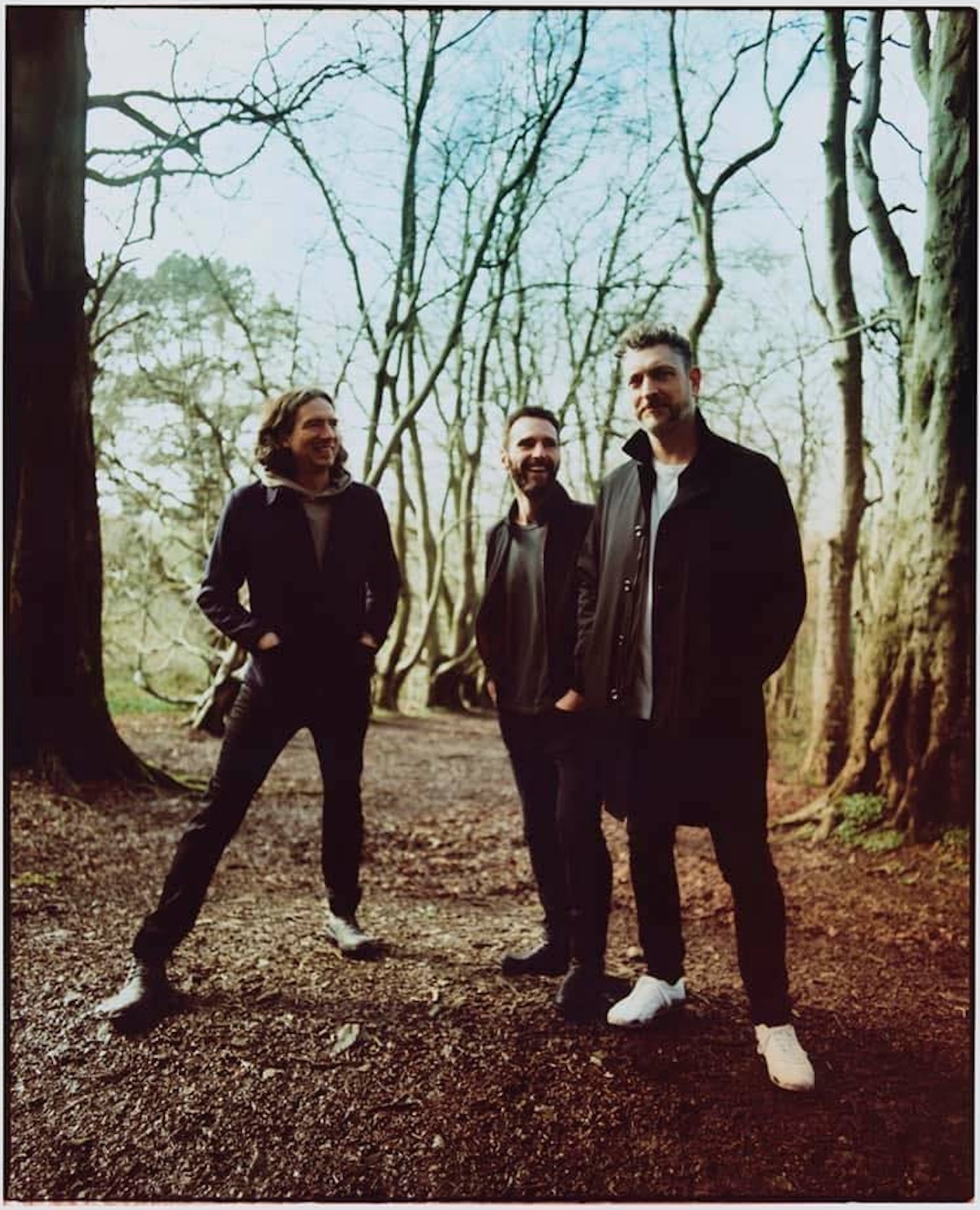
There are times during our encounter where the conversation feels like a group therapy session — unsurprisingly, given how intense and cathartic the recording sessions with Fraser were. All three describe them as utterly transformative, not least Gary, for whom they were like looking in the mirror and refusing to turn away. Listening to u, you feel that his whole journey as a songwriter was fated to arrive at this point. No filter, total honesty and humility, a deep and untiring excavation of the past. Hearing his lyrics and his singing — the best and most beautiful of his career — on the album is sometimes almost unbearable. You feel as if you’re staring into his soul.
“I’m a big believer in that John Lennon thing, summoning the lightning and dragging it down,” Gary says. “That it’s not yours; it belongs to the sky. A lot of the time, the album felt like it was just happening. I certainly felt like I had to get out of the way of it. We’ve made so many records where I have sat and stared at the fucking computer screen and the flashing cursor, for hours and hours and hours. But on this album, the inertia that I was bound to for so many years was finally shaken off. It felt like action and activity, and the infusion of something beyond understanding.
“The Beginning is the cornerstone. ‘I want to be loved without being loved in return.’ That was so much of what my problem was in relationships before. When anyone loved me, I had so much self-loathing that I immediately started to mistrust their love. You know: I hate myself so how can you like me? Now, I don’t; I have lots of self-doubt, but I don’t have self-loathing because I’ve done a lot of work, and we’ve done a lot of work together, all of us. We’re able to look back on that without piling on top. Self-forgiveness — that’s something I’m still working on. But I have self-compassion. The thing I think about self-forgiveness, and it leads into this album for sure, is that in the end it’s the only forgiveness that really matters. I’ve been forgiven by so many people, for the things that I’ve said, the mistakes I’ve made in relationships, but I still hate myself for it. I’ve carried that. The forgiveness that someone else gives me really doesn’t touch the sides. To find self-forgiveness, first of all you have to have accountability, then contrition — and only then you might find it.”
The Forest Is The Path’s masterstroke is to set Gary’s self-investigation and expiation to music of incandescent beauty, its textures, lulls and crescendos, use of space and contrast burrowing their way into your heart. Disobeying the pop rulebook, which teaches us that artists and bands hit an early peak and then struggle with diminishing returns, Snow Patrol have, 30 years into their career, minted a masterpiece. They are now emerging, blinking, into the daylight, still trying to make sense of the album they’ve made, and the emotions that went into it. All wear the look of someone slightly stunned by the experience. I feel the same, having listened to the 12 tracks that make up The Forest is the Path. I lost count of the times where it felt as if my heart was in my mouth as the songs invaded my consciousness. They are soul-rattling, heart-shredding, life-changing.
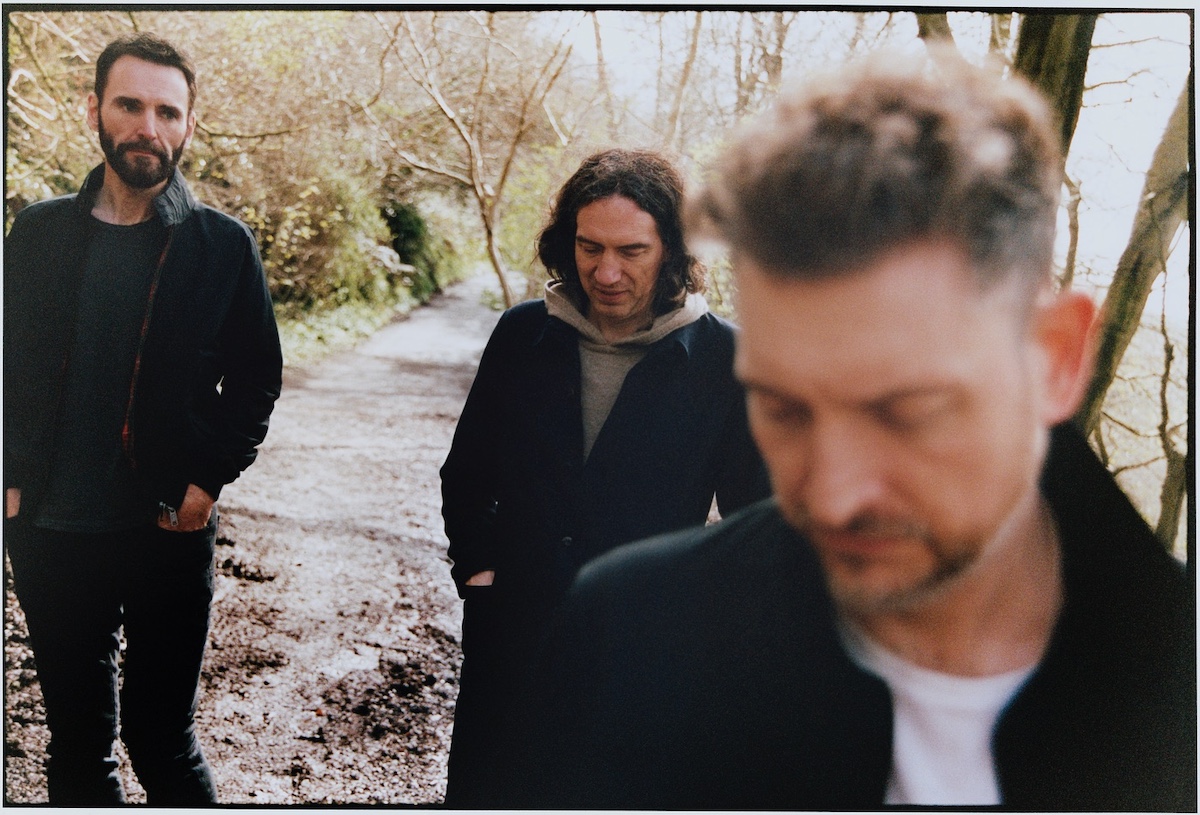
Before we part, Johnny looks across at Gary with undisguised love in his eyes. “Gary has this gift that I don’t experience in many other people where it’s like witnessing an antenna that is able to tap into something that it doesn’t necessarily need to intellectualise but is able to transmute into something ‘felt’. There is so much lyrical curiosity on this record but there was also a spiritual curiosity. We’re not just in a band, we’re best friends, so we had that dynamic about us too. We use the term ‘brother’ often, but we mean it, we feel it. We couldn’t be more close. We don’t share DNA, or at least not that we’re aware of, but there is a sort of psycho-spiritual DNA, a deep friendship that is so trusted in by all of us. We got to invite that curiosity in and go, ‘What if we really explored this?’ That would have been too uncomfortable in the past. But there is so much trust between us now. Gary was the path and we followed it. Sure, we fell and cut our knees a few times along the way, got some bumps and scratches, but we trusted in it. The album is the most emotional journey I’ve ever been on.”
“The work we were doing on ourselves and the conversations we were having with each other — the deepest conversations I’ve ever had — have been about the idea of surrendering,” adds Gary. “The possibility that you know anything at all has to be challenged. My mantra when I wake up every morning is: I know nothing. Please let this day teach me something. It’s like humbling yourself every day. Writing this album was like mainlining confusion.
“Seamus Heaney said, a few years before he died, that he was still finding out what poems meant that he’d written 30 or 40 years before. As soon as I heard that, something was unlocked inside me. Like, I get it now. I’m not supposed to know. And that’s kind of what this album is about.” He looks at Nathan and Johnny. “These two gentlemen here were responsible for so much. Those moments on the album that make your heart soar way, way above you, like a fucking halo. The architecture and the landscape are so crucial on this album. They elevate it beyond anything we’ve done before.”







